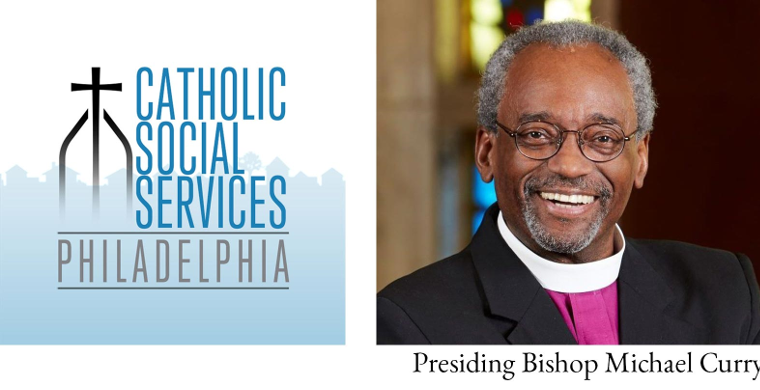Roman Catholic and Episcopal Church lock Horns Over Rights of Homosexual Couples to Adopt
By David W. Virtue, DD
www.virtueonline.org
August 25, 2020
Episcopal Presiding Bishop Michael Curry has filed an Amicus Brief before the Supreme Court supporting the rights of homosexual couples to adopt, even though it violated official Catholic Church teaching and Philadelphia-based Catholic Social Services (CSS) policy on homosexual couples' adoption. The CSS says it is a religious freedom issue. The Roman Catholic Church has steadfastly believed that homosexual behavior is "intrinsically disordered."
Nondiscrimination policies that forbid government contractors from discriminating against homosexual couples seeking to serve as foster parents do not unconstitutionally burden religious liberty, said the Presiding Bishop of The Episcopal Church.
Curry joined with leaders of the Baptist Joint Committee for Religious Liberty that also includes the United Church of Christ and the Evangelical Lutheran Church in America in signing a friend of the court brief in support of the City of Philadelphia in Fulton v. Philadelphia, a case now before the United States Supreme Court.
Curry said he did so to affirm the commitment of The Episcopal Church to both equal protection of the law for LGBTQ persons and appropriate protections for religious liberty. He did not explain what those protections for religious liberty were.
Fulton involves a suit brought against the City of Philadelphia by Catholic Social Services. CSS, which contracted with the City to help administer the City's foster care program, refuses to license homosexual couples as foster parents in violation of the City's nondiscrimination policies. CSS claims that its right to the free exercise of religion exempts it from complying with those policies in carrying out the foster care program. The 3rd Circuit Court of Appeals disagreed, ruling in the City's favor in 2019, and CSS appealed to the Supreme Court.
Their brief argues that the City's policy forbidding government contractors from discriminating against homosexual couples wishing to serve as foster parents does not infringe upon the First Amendment's guarantee of religious liberty, and that such nondiscrimination policies in fact enhance religious liberty by protecting against unequal treatment of foster parents on the basis of their religious beliefs.
"[T]he American experiment contemplates that individuals may not only coexist peacefully in spite of their differences, but may participate in society with equal dignity," reads the brief signed by Curry. Further, "[g]overnments, religious organizations, and the people have long benefitted from ... governmental partnerships with religiously affiliated charitable groups. Indeed, partnerships between the government and faith-based groups playing a role in social services is a strength of this country's pluralistic tradition. At the same time, no organization--religious or secular--is entitled to veto the government's choices on how a public program is to be run."
The Rev. Gay Clark Jennings, president of the Episcopal Church's House of Deputies, was also a lead signer on a friend of the court brief, arguing that the First Amendment guarantee of religious liberty is strengthened, not constrained, by nondiscrimination policies. She also did not say how.
The brief was signed by nearly 430 interfaith leaders from across the United States, including 35 Episcopalians.
The Roman Catholic Church has steadfastly held that sex outside of marriage between a man and a woman violates Church teaching and homosexual marriage is "objectively disordered."
The General Convention of The Episcopal Church has adopted a series of resolutions over the years calling for the protection of all people regardless of sexual orientation as well as for the protection of every person's right to religious liberty. These resolutions are grounded in The Episcopal Church's understanding of the implications of the divine decree in creation, that all human persons are created equally, imago dei, in the image of God, and as such are of equal value, worth and dignity in the eyes of God, a moral reality that should be protected under human law. (Genesis 1:26-27).
However, the full text of Genesis 1: 27 reads, "So God created man in his own image, in the image of God created he him; male and female created he them." This is reaffirmed in Genesis 5:2. There is no evidence that God opened the sexual matrix to include same sex relationships.
The court is scheduled to hear oral arguments in the case on November 4. A decision is expected by June 2021.
END














